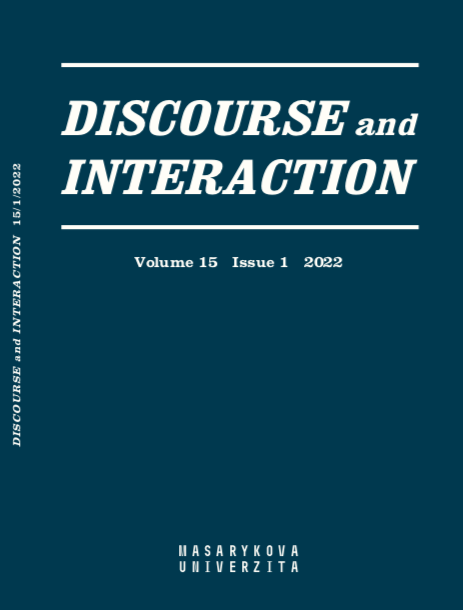On persuasive strategies: Metadiscourse practices in political speeches
On persuasive strategies: Metadiscourse practices in political speeches
Author(s): Hadi KashihaSubject(s): Language and Literature Studies, Syntax, Semantics, Pragmatics, Sociolinguistics, Philology, Stylistics
Published by: Masarykova univerzita nakladatelství
Keywords: audience; interactional; interactive; metadiscourse; persuasion; political speech
Summary/Abstract: This study attempted to investigate the persuasive meaning of metadiscourse markers in political speeches to see to what extent and how persuasive discourse is constructed in this genre through metadiscourse practices. To this aim, twenty-six political speeches given by Barack Obama, a former president of the United States, were analyzed using a discourse analytic approach and following Hyland’s (2005ab) interpersonal models of metadiscourse to identify the frequency and persuasive function of interactive and interactional devices used. The findings indicated that the persuasive meaning conveyed by metadiscourse was for the most part context-dependent, which sometimes required the speaker to rely on a combination of devices to organize his discourse, persuade audiences,attract their attention and engage them in arguments. Furthermore, interactional devices were more frequently used than interactive ones, reflecting that engaging audiences in arguments and showing one’s attitude and evaluation towards propositions were more likely to contribute to constructing a persuasive political speech. Findings can be discussed in terms of raising the awareness of second language speakers toward the linguistic and pragmatic conventions of political discourse and how persuasive discourse is constructed through metadiscourse markers.
Journal: Discourse and Interaction
- Issue Year: 15/2022
- Issue No: 1
- Page Range: 77-100
- Page Count: 24
- Language: English

